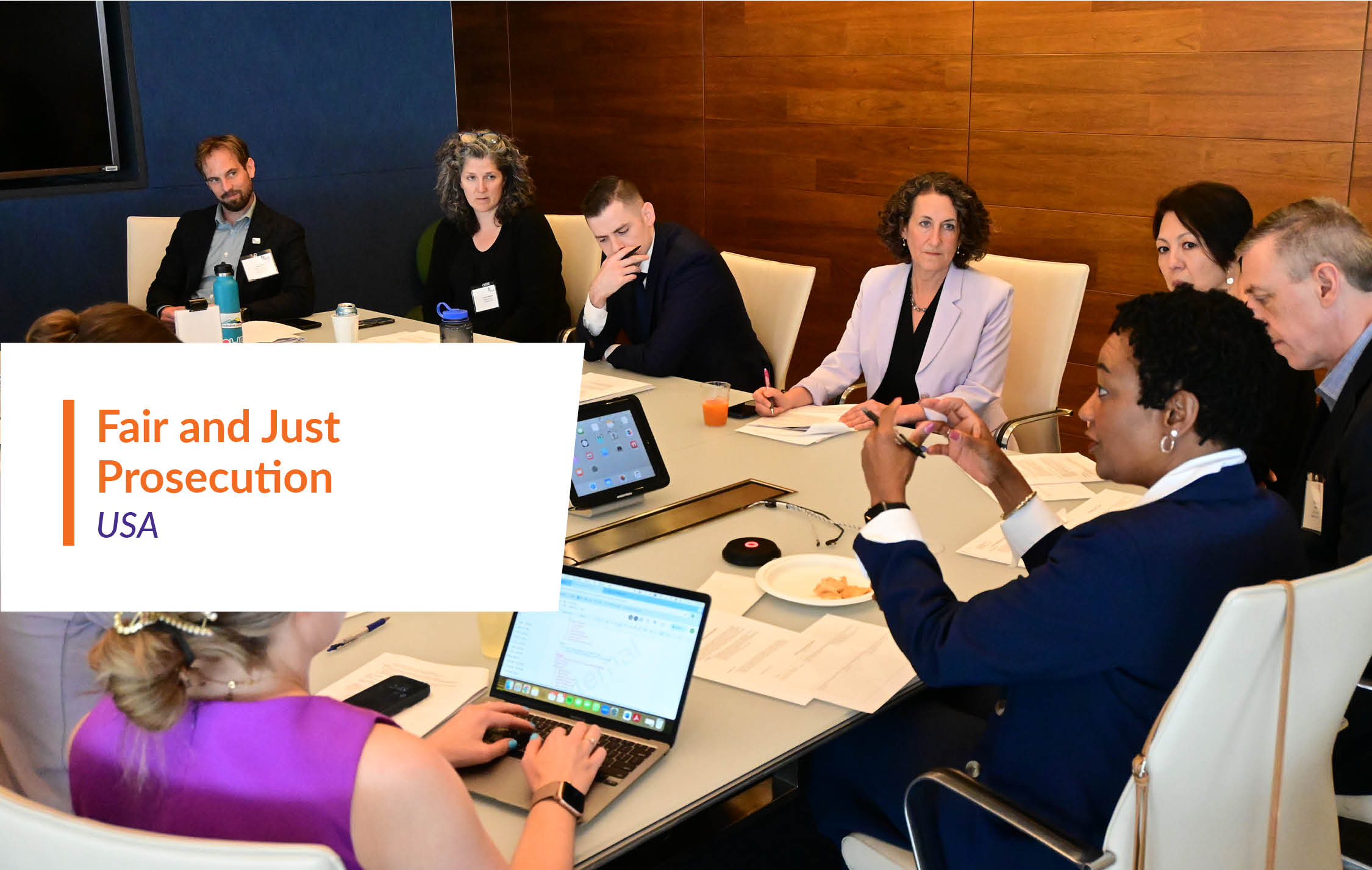Finalist
U.S. Building Trust Prize
Education
Media and Journalism
Transparency and Accountability
Voter Information
Voting Rights and Access
Share this
Contact information

Empowering Prosecutors to Protect Democracy and Advance Free and Fair Elections
The Problem
The project addresses two distinct but mutually reinforcing problems: the existence of threats to election integrity and security across the United States and the erosion of public trust in the democratic process in the United States. Since its founding in 2017, Fair and Just Prosecution (FJP) has worked to provide elected prosecutors with space to collaborate, share innovations, and learn from experts across the field on a range of issues related to criminal justice reform. In 2020, FJP recognized that these criminal justice leaders – who serve a broad cross-section of the American electorate – would have to grapple with new and urgent challenges as they prepare for a historically unique election. FJP identified a gap in these leaders’ familiarity with, and focus on, issues of preserving democracy – including election integrity and protection – despite their critical role in tackling these issues and promoting free and fair elections.
The Approach
This initiative focuses on reform-minded elected prosecutors (District Attorneys or DAs) and their role in protecting election integrity and combating threats to democracy. Prosecutors occupy a dual role encompassing both law enforcement and community leadership, making them well-suited to address potential law violations surrounding the voting process and build public trust in democratic institutions. FJP works with a network of DAs in over 60 jurisdictions, encompassing nearly 20% of the U.S. population.
In the lead-up to the 2020 election, FJP produced resources to educate the DAs in the network on issues related to election security and democracy. This included a public service video, communications guidance, toolkits, planning materials, and practical recommendations that elected leaders were able to use to combat misinformation spread of and fear tactics that sought to dissuade individuals from exercising their right to vote. Both before and after the election, FJP leveraged experiential learning opportunities to educate DAs on the mechanics of protecting free and fair elections and inspire big picture thinking in the fight against authoritarianism.
Since the 2020 election, FJP has worked to counteract and highlight the danger of recent efforts to undermine democratic processes, in the form of removing locally elected officials or divesting their well-established authorities.
The Impact
-
Submitted several amicus briefs (see examples here, here, and here) on behalf of criminal justice leaders to challenge undemocratic attacks to remove locally elected DAs and protect the choice of voters.
-
Hosted over a dozen DAs on a trip to Germany in 2019 for site visits and conversations on understanding and countering the complex factors that enable authoritarianism.
-
Hosted DAs on visits to the Civil Rights Memorial Center in Montgomery, Alabama and the United States Holocaust Memorial Museum in Washington, DC for conversations on the historic complicity of law enforcement officials in enabling authoritarianism and the need for courageous leadership in the modern era.
-
Published op-eds here, here, here and here; issued joint statements regarding protecting voters and the right to vote (see here and here).
-
Published a law review article analyzing anti-democratic attempts to seize power from elected prosecutors and defending locally elected prosecutors’ discretion.
The Future
In 2024, FJP will host convenings throughout the year, fostering a community of practice in which DAs can continuously learn from experts and share recommendations to enhance efforts to safeguard elections. FJP will provide DAs with specific, actionable recommendations for preparing for the election; resources equipping them to serve as effective spokespeople in their communities; and scenario analysis and planning, enabling them to prepare for possible challenges before, during, and after the election. Many resources will be outward facing.